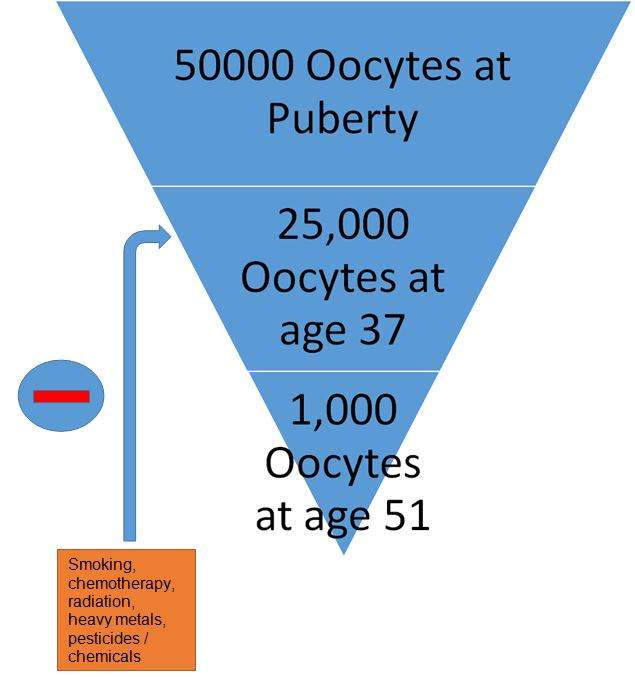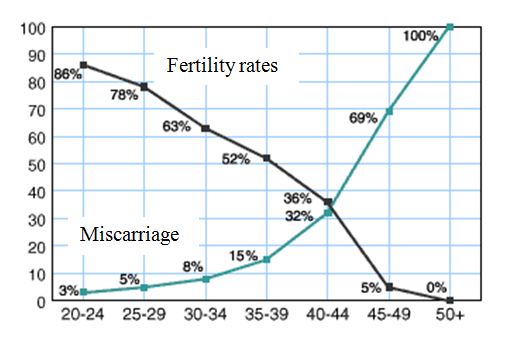Normally at time of birth, there is an approximately 1 to 2 million follicles (eggs) in ovary, and it reduces to 30000 to 500000 remain by the onset of puberty. During the reproductive years of life, the number of primordial follicles decreases at a steady rate of approximate 1000 follicles per month. Most of the premature follicles degenerate at different developing stages and only about 400–500 follicles undergo ovulation during this time.
After 30 years of age fertility rate begins to slowly decrease and the number of follicles could fall below the critical level of 25000 at approximately 37.5 years of age. The age of menopause usually occurs at an average age of 51 years, when only about 1000 follicles remain in the ovaries. The decreasing quantity of eggs in the ovaries is called “loss of ovarian reserve.” It must be noted that not only the quantity but also the quality declines with age.
Based on this one realises that fertility rate peaks from the late teens through the late 20s and then begins to decline. After the age of 30 the chance of becoming pregnant starts to decrease while the incidence of miscarriage begins to increase. By age 40 a significant number of women will experience difficulty in conceiving. By age 45, very few women will be able to have a successful pregnancy.
Environmental factors also contribute towards premature ovarian aging mainly smoking. The other factors include exposure to chemotherapy, radiation, heavy metals, pesticides and chemicals. Maternal age is the best indicator of egg quality. There are medical tests available for ovarian reserve. These tests give information about whether age-related changes of the ovaries have begun but do not indicate whether pregnancy is possible.
The medical test include ultrasound examination to count the number of follicles and hormonal testing. However it is important to realise that women with poor ovarian reserve have a lower chance of becoming pregnant than women with normal ovarian reserve in their same age group.


Reference:
- Baird D T, Collins J, Egozcue J, et al. Fertility and ageing. Hum Reprod Update, 2005, 11: 261–276 3 Broekmans F J, Knauff E A, te Velde E R, et al.
- Female reproductive ageing: Current knowledge and future trends. Trends Endocrinol Metab, 2007, 18: 58–65 2.
| Last Review | : | 31 March 2017 |
| Writer | : | Dr. Kannappan A/L Palaniappan |
| Accreditor | : | Dr. Noraihan Bt. Mohd Nordin |







